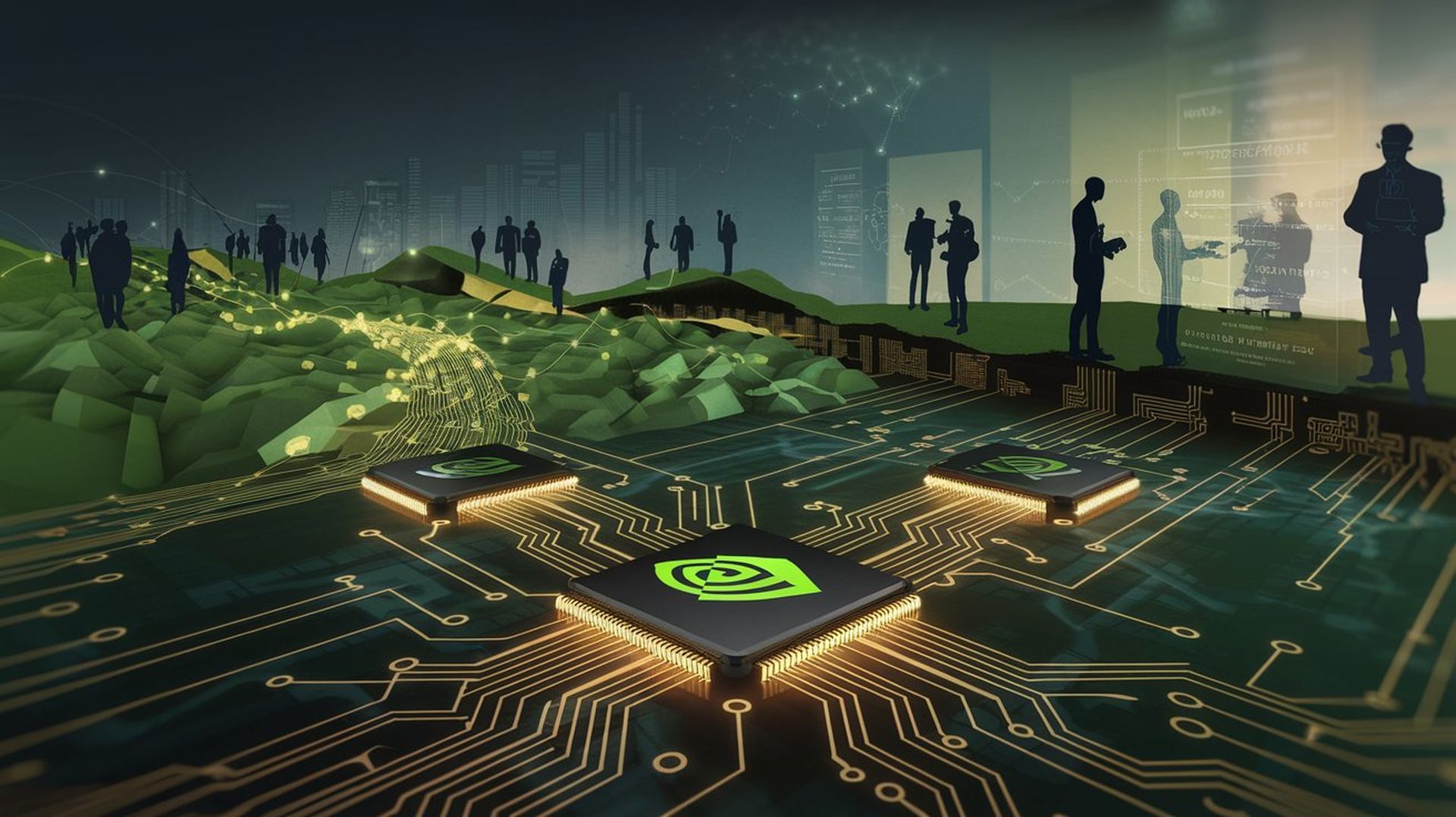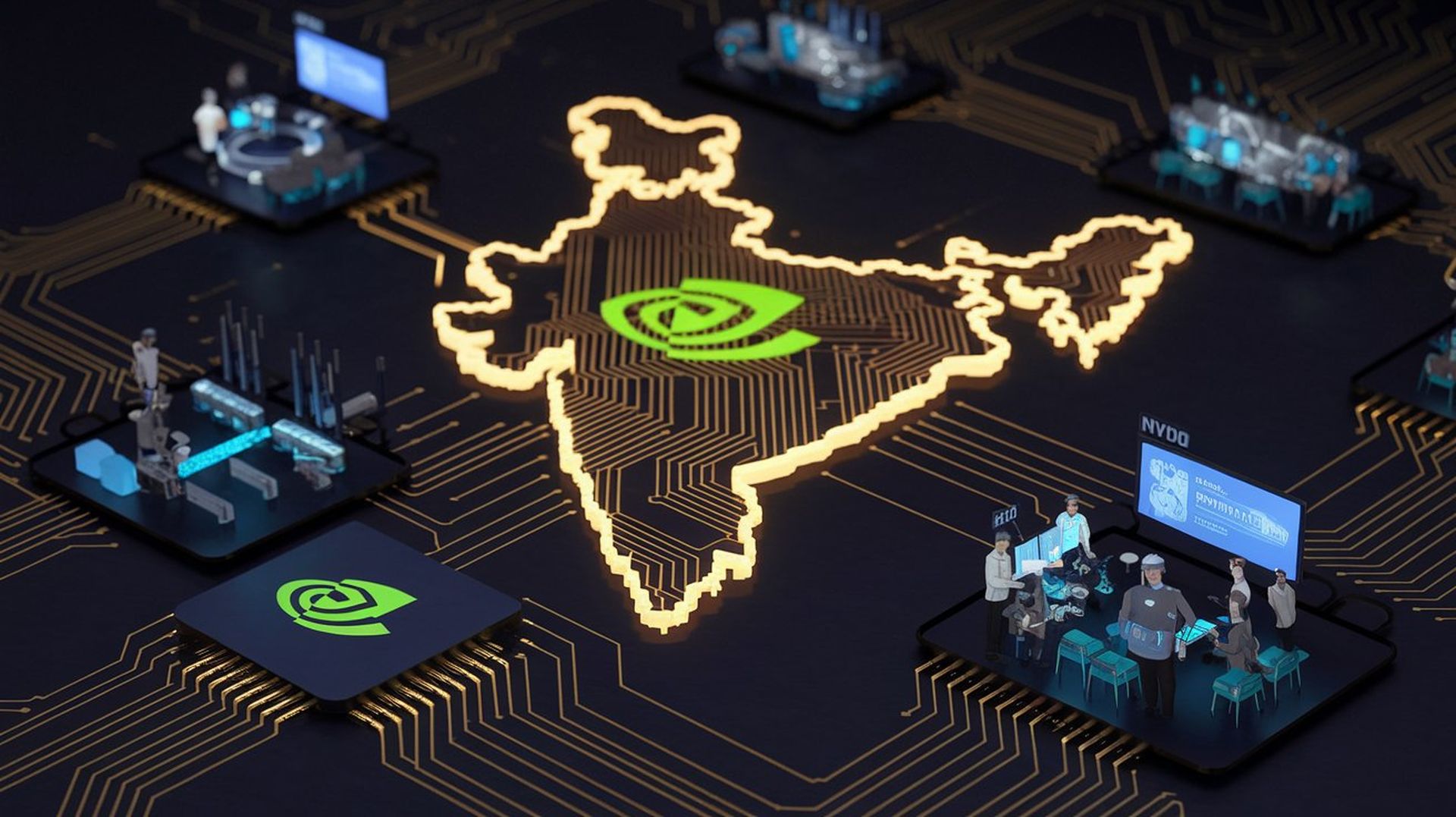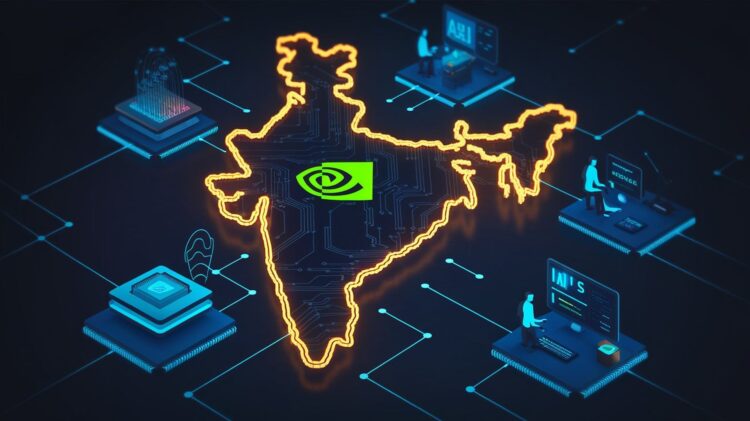By diving deep into India’s blossoming AI sector, Nvidia is making big moves to secure its footing in a tech innovation goldmine. As part of its strategy to roll out its AI technology and chips, including those revolutionary H100 models, Nvidia has signed several partnerships with India’s biggest firms. This is to build a new infrastructure supporting AI applications nationwide.
‘In a keynote address at Nvidia’s ongoing AI Summit in Mumbai, CEO Jensen Huang provided insight into the company’s plans for India, highlighting partnerships with players such as Reliance and Tech Mahindra,’ an Nvidia spokesperson said. India’s tech ecosystem will soon shift as these deals are set to catalyze the country’s AI capabilities and infrastructure.

How Nvidia is empowering India’s workforce with AI
Reliance is part of the center of Nvidia’s strategy as it is one of India’s largest conglomerates. US chipmaker Nvidia will provide the technology backbone for the rapid development of AI applications in India, a key market for the company. It ranges from building AI cloud infrastructure to training employees to use those AI tools.
India’s tech space is dominated by another heavyweight—Tech Mahindra—attempting to create Indus 2.0, an artificially intelligent model custom-made for Hindi, a language spoken by over half a billion people. Nvidia’s focus on local languages reflects its effort to make AI accessible to a wide population.
Moreover, Tata Communications and Yotta Data Services will purchase tens of thousands of Nvidia H100 chips alongside other AI infrastructure by the end of the year. The deals arrive when Indian companies race to build AI capabilities and keep up with the global trend. Companies like Infosys and Wipro are already developing custom AI solutions on Nvidia’s software.
India’s workforce also affects Nvidia’s partnerships. Responding to the AI wave, companies like Wipro and Tata Consultancy Services (TCS) are training their staff on Nvidia platforms; Wipro has trained 225,000 employees on Nvidia platforms, and TCS is upskilling 50,000 staff members as AI associates. Nvidia is working closely with Indian firms and has attracted more than 500,000 developers to its developer program, granting them access to the most advanced AI tools and training.
At the AI Summit, Huang made it explicit that India’s role in the global tech world was progressing. “We used to be a country that exported software.” ‘In the future, India will be a country that exports AI,’ he said. This shift shows India’s growing AI innovation power and the possibility of being an AI hub worldwide.

AI expands to e-commerce and startups
Indian e-commerce giant Flipkart and software provider Zoho also use Nvidia’s tech to create large language models in Hindi. These models will help take the service to the next level and streamline customer interactions in one of the world’s most linguistically diverse nations.
Nvidia’s AI is also benefiting several Indian startups. For example, Indian Railways provided the Chinese passenger demo for the CoRover.ai chatbot, which handles 150,000 daily queries in various languages. In fact, since its launch, the chatbot has interacted with over 10 billion customers, reflecting our potential with AI-enabled solutions.
Nvidia’s push into India follows. It is also facing off against rivals, including AMD and Intel, which want to scoop some of the country’s burgeoning AI chip market. Nvidia is creating more than 100,000 AI developers in India and is well-positioned to help define the country’s future. This wave of AI-focused initiatives highlights a critical point: India is not merely catching up on the global tech trend but actively building its road map. Through working with Nvidia, the country is laying the foundations for becoming a regional and international specialist in AI technology.
Image credit: Furkan Demirkaya/Ideogram





